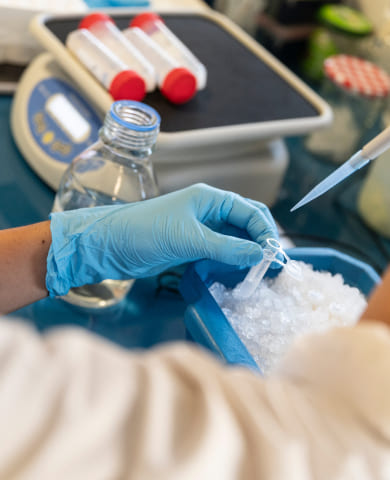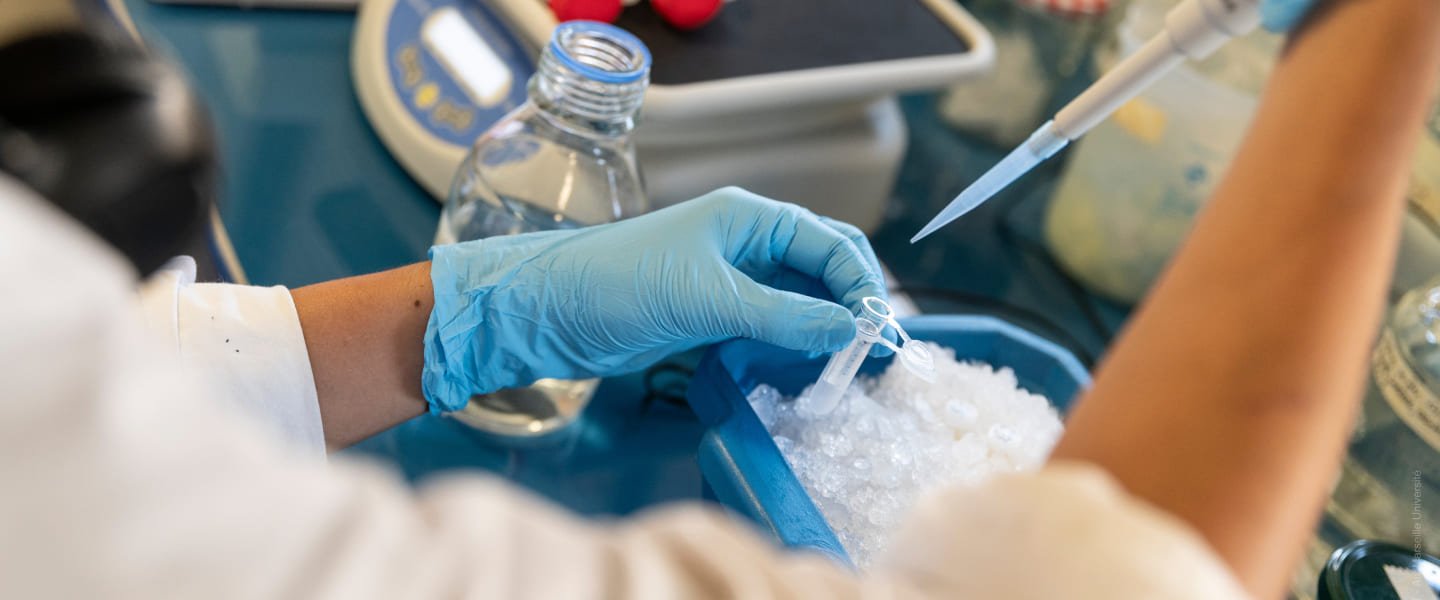A French-American breakthrough rewrites DNA to defeat cancer
Home - Innovation - Communiqué de presse - Lancement MIB


A 36-year-old American patient with stage IV colorectal cancer was facing a critical situation: all conventional treatments had failed.
Today, however, she has been in complete remission for nearly two years thanks to her participation in a groundbreaking clinical trial conducted at the prestigious Masonic Cancer Center at the University of Minnesota in Minneapolis.
This remarkable success—showing no detectable cancer cells—represents a true beacon of hope and a major breakthrough in the fight against cancers long considered incurable.
Behind this outstanding achievement lies an innovative approach stemming from fundamental research initiated more than a decade ago by French scientist Geoffrey Guittard of the French National Centre for Scientific Research (CNRS). Now based at the Cancer Research Center of Marseille (CRCM)—one of the leading laboratories within the Marseille Immunology Biocluster (MIB), co-directed by Daniel Olive and Jacques Nunes—Geoffrey Guittard began his pioneering work during his postdoctoral fellowship at the U.S. National Institutes of Health (NIH).
During his time in the United States, he identified the crucial role of a protein called CISH. This protein acts as a natural brake, limiting the ability of immune cells to destroy cancer cells. When CISH is absent or inhibited, immune cells—particularly T cells—become significantly more powerful and effective against tumors.
This conceptual discovery opened up a new therapeutic avenue: by removing a natural brake, the immune system’s ability to fight cancer could be dramatically enhanced.
It is precisely this fundamental hypothesis that led to the launch of the world’s first clinical trial using CRISPR-Cas9 technology to directly target the CISH gene. This revolutionary gene-editing tool acts as a pair of molecular scissors, allowing scientists to precisely cut and modify the DNA of cells.
The trial was made possible through collaboration between the teams of Professor Emil Lou and Dr. Branden Moriarity at the University of Minnesota and the biotechnology company Intima Biosciences. In practical terms, T cells infiltrating patients’ tumors were extracted, selected for their ability to recognize the tumor, genetically modified using CRISPR-Cas9 to delete the CISH gene, expanded in number, and then reinfused into the patients.
The results have been particularly encouraging. Among the twelve patients enrolled in this pioneering clinical trial, six showed significant improvement in their condition. Although the genetically modified cells remain in the body for only a few weeks, their beneficial effects can last for several months thanks to the establishment of a durable immune response known as “memory.” It is this memory response that explains the American patient’s spectacular remission.
Building on these results, Geoffrey Guittard and his colleagues at CRCM are now pursuing this research actively in Marseille. Their goal is twofold: to extend this approach to other immune cells—particularly Natural Killer (NK) cells—and to simplify the genetic technology required for cell modification.
To that end, the team is currently developing new non-viral methods as well as pharmacological inhibitors that can directly block the CISH protein, paving the way for faster and broader clinical applications.
MIB is expected to play a key role by providing CRCM teams with access to state-of-the-art cell therapy platforms such as Cellscale. Meanwhile, the Paoli-Calmettes Institute (IPC)—the region’s leading cancer center and one of MIB’s founding members—has expressed strong interest in advancing these novel therapeutic strategies. The approach described here could therefore be developed further in direct collaboration with the American team.
While these results are extremely promising, several challenges must still be addressed before this therapy can be widely adopted. Larger-scale clinical trials, potentially involving patients with earlier-stage cancers, are already being considered by the study’s authors.
Ultimately, this innovative strategy could offer a new universal therapeutic option against multiple types of cancer. Thanks to the integration of expertise from Marseille and the United States and ongoing technological simplification, the hope of providing an effective and accessible treatment to a greater number of patients is becoming an increasingly tangible reality.
This initial success once again highlights the crucial importance of fundamental research and ambitious international collaborations in transforming the fight against cancer.
Partager
Actualités
